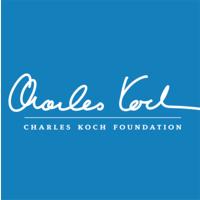NADINE STROSSEN: I was very good friends with Nino Scalia, as I called him, not despite the fact that we had very strong disagreements on issues that were of fundamental importance to both of us, but because of that fact, because of those disagreements we were invited to debate each other in various forums all over the world. And as is true for any two thinking people there are some deeply important issues where we strongly disagree, but also some issues that are deeply important to both of us where we strongly agree. And both our mutual respect and liking arose from the exchange of ideas in a respectful manner, the open listening and grappling with each other's ideas and doing it for an audience.
As a teacher and an advocate, I am so grateful for Justice Scalia's generosity in speaking before all kinds of audiences. The mutual respect, I think, is evidenced in the fact that we were doing those kinds of events. I would have liked him just for the fact that he was engaging in that process of exchanging ideas and he would often do it in audiences that you could expect to be hostile to him, right, not just preaching to the choir. I think the most dramatic example was he agreed to do one of these exchanges with me at an ACLU National Membership Conference.
It's really sad that people seem to think that if you disagree with somebody on some issues you can't be mutually respectful, you can't enjoy each other's company, you can't learn from each other and grow in yourself. Because I have found that having friendships and collegial relationships with people with whom I strongly disagree has been not only advantageous to advancing causes and concerns that are deeply important to me, but also have just been so enjoyable on a personal and human level and have really enriched my life. So, for example, I care very deeply about education. I think I'm a much more effective educator when I teach students or speak before students in the context of an exchange with somebody else who has different ideas. I think that deepens the student's understanding of the multiple perspectives that are plausible on particular issues and enriches their own analysis and their own understanding.
Working with the ACLU, which has always been a staunchly non-partisan organization by definition, through our own corporate charter never oppose or endorse any candidate, official, party or organization, rather we will criticize or praise every individual or every group on an issue by issue basis. And once you do that you have to acknowledge that there is nobody with whom you do not strongly agree on at least some important issues, no matter how strongly you may disagree on other important issues.
And in terms of advancing your causes, if you can work together collaboratively with somebody who you agree with on a particular issue you should do that regardless of whether you disagree with them on another issue. It's going to make it easier and more likely that you are going to succeed in your jointly shared cause -- but also on a human level it's just fun and interesting to get to know and spend time with and learn from people who have different ideas.







